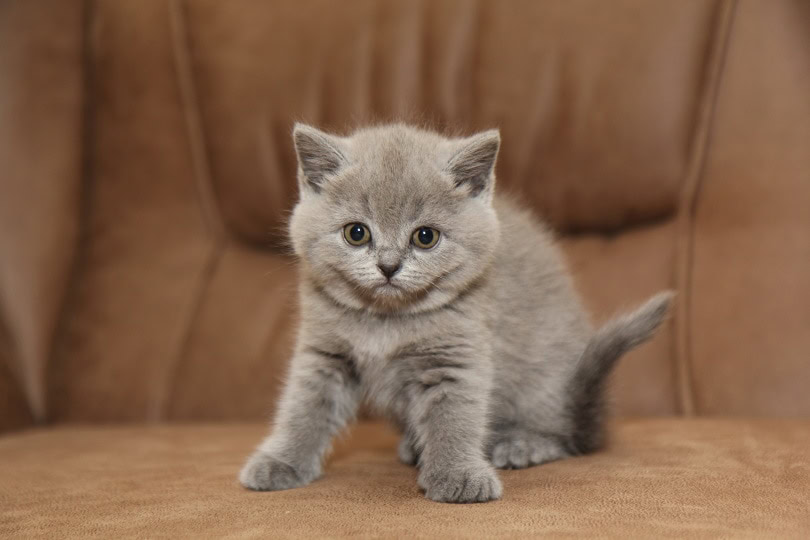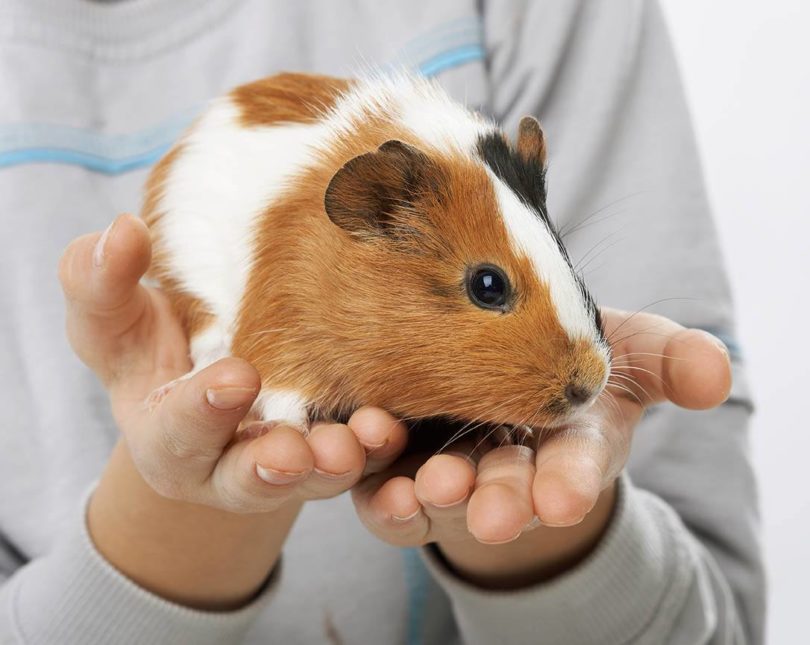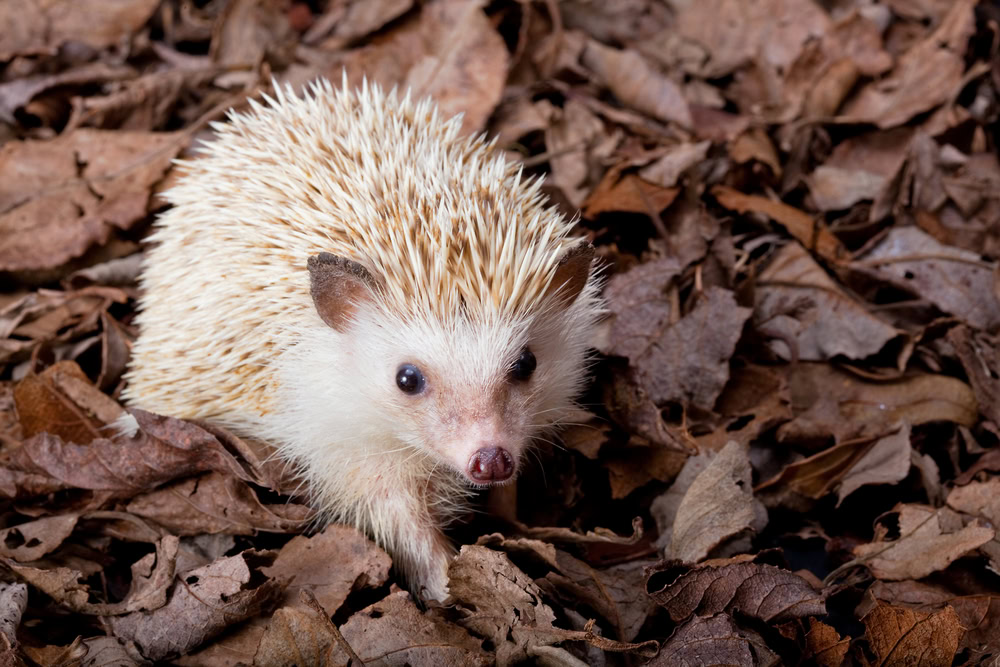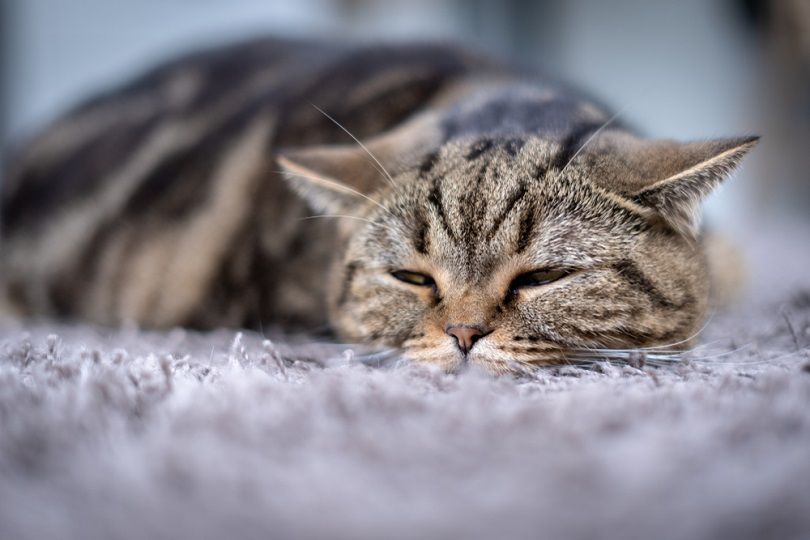VET APPROVED

The information is current and up-to-date in accordance with the latest veterinarian research.
Learn more »Click to Skip Ahead
Cats have a reputation for being independent, but they don’t start that way. Infant kittens are quite helpless and need a great deal of care, attention, and assistance. One thing that they need help with is urinating and defecating. Kittens will poop on their own once they reach 3–4 weeks old. Until then, though, they need help with relieving themselves.
It’s important to understand the developmental processes of kittens’ abilities to poop and pee. It’s not the cleanest job, but proper care in this arena will keep your kittens healthy and prevent any urinary tract infections and constipation.

How Do I Massage My Kitten to Poop?
Usually, young kittens under the age of 3 weeks receive help from their mother to relieve themselves. At this age, they haven’t developed the awareness and ability to go on their own just yet, so they need assistance.
Mother cats will encourage their kittens to poop by licking them. If you have orphaned kittens, you’ll have to mimic a mother cat’s actions to get the kittens to pee and poop.
You can help kittens poop after they’ve finished eating. Start by using a damp washcloth or cotton ball. These items feel similar to a mother cat’s tongue.
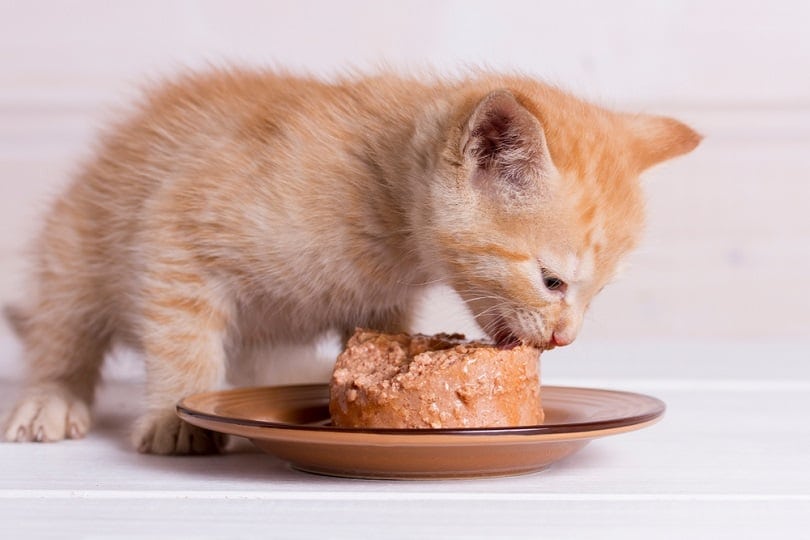
Gently pick up the kitten with your non-dominant hand. Then, use the washcloth or cotton ball to massage the kitten’s anal area gently. You may have to massage for 10 to 40 seconds.
This motion should help the kitten to relieve themselves. Keep massaging until they stop peeing or pooping. Once they have finished, make sure to clean and wipe them up. Do a thorough job of cleaning up their anal area after each time they go to the bathroom to avoid infections. Gentle and hypoallergenic cat-safe cleaning wipes are safe to use to keep your kittens clean and deodorize any smells.
- Gentle Care For All Pets - Infused with moisturizing hypoallergenic ingredients & enriched with...
- Deep Cleans From Head to Tail - Tackle the toughest dirt & messes with our extra strong pet wipes...
- Freshness On The Go - Each dog grooming wipes pack contains 30 counts of premium dog wipes that...
Whether your pet needs a quick refresh or cleanup of a sensitive area, pet-safe wet wipes are a convenient option. We recommend Hepper's Wash Wipes because they're effective on dirt and odors but also gentle on the skin. These USA-made premium wipes are safe for cats and dogs of any age and contain hypoallergenic, moisturizing ingredients.
At PangoVet, we've admired Hepper for many years, and decided to take a controlling ownership interest so that we could benefit from the outstanding designs of this cool cat company!
The whole process of getting your kitten to relieve themselves shouldn’t take more than a minute. If there are several consecutive instances where the kitten doesn’t pee or poop within a minute, call your veterinarian to figure out what’s causing the issue.
Sometimes, a kitten will spit up milk after a feeding. If this occurs, try switching up the order. Massage the kitten first and see if they relieve themselves. Then, proceed to feed them.
How Often Should a 2-Week-Old Kitten Poop?
2-week-old kittens usually urinate with every massage. They may poop about once or twice a day. If a kitten goes a day without pooping, it’s time for a visit to the vet.
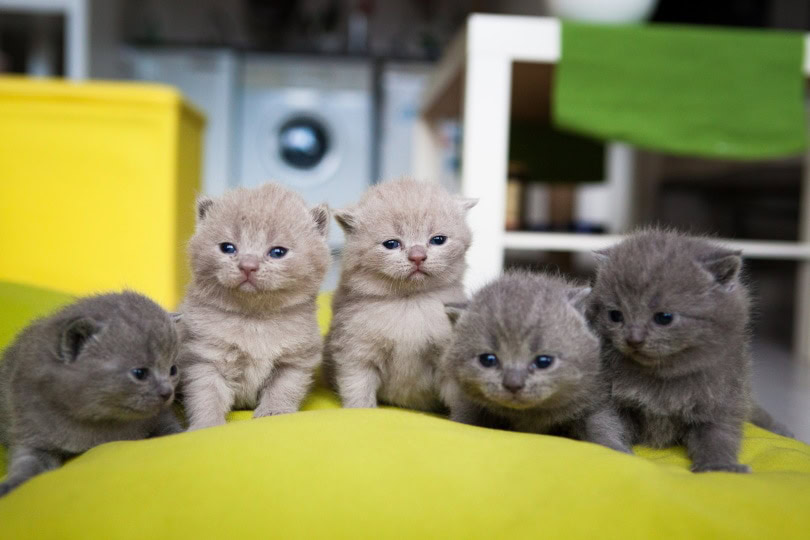
Why Is My Kitten Peeing But Not Pooping?
There are several reasons that kittens experience constipation. They can be dehydrated or have something blocking their digestive tract, such as hairballs. Parasitic worms can also prevent pooping.
Sometimes, kittens have congenital disabilities, which make it extremely difficult to poop. If your kittens are peeing but not pooping, make sure to contact a veterinarian right away. They can diagnose the issue and provide a regimen to help your kittens have regular bowel movements.
At What Age Can You Litter Box Train a Kitten?
Litter box training can start as soon as a kitten reaches 4 weeks old. It’s usually easy to train kittens to use a litter box because they naturally prefer to relieve themselves in specific areas.
How Do You Litter Box Train a Kitten?
When you first start litter training, use a smaller litter box so your kitten doesn’t feel intimidated by the size. Place multiple litter boxes throughout the house in well-lit places that are easy to find.
Next, place your kitten in each litter box so it becomes familiar to them. Some kittens will instinctually relieve themselves. Reinforce these wanted behaviors by providing a treat every time your kitten uses a litter box.
If your kitten doesn’t take to using the litter box right away, you can take them to the litter box every time after they wake up, eat, or drink. Watch and wait for them to pee or poop before letting them go. Always praise your kitten and give them a treat every time they use the litter box successfully.
Never scold or yell at your cat if they miss the litter box. This can actually end up reinforcing negative behaviors. Instead, thoroughly clean the spot with a cleaner in order to prevent your cat from habitually relieving themselves in the unwanted area.
Hepper Advanced Bio-Enzyme Pet Stain & Odor Eliminator Spray is our favorite all-purpose cleaner for pet messes. It permanently lifts the very worst stains and odors, making clean up and accident prevention a breeze. Hepper offers a 100% guarantee, which is a great bonus! Learn more about it here.
- ADVANCED ENZYMATIC CLEANER - Penetrates the most stubborn smells and stains at the deepest molecular...
- FOR ANY MESS, ON ANY SURFACE - This pet odor eliminator cleans your carpets, floors, furniture,...
- FRESH, NATURAL ODOR - Our unique formulation doesn't rely on dangerous or unpleasant chemical...
At PangoVet, we’ve admired Hepper for many years, and decided to take a controlling ownership interest so that we could benefit from the outstanding products of this cool cat company!
If your kitten has a particularly difficult time learning to use a litter box, don’t hesitate to work with a cat behaviorist. They can help you figure out the root cause of the problem and develop appropriate responses and solutions to address it.
How Do I Know When My Kitten Needs to Poop?
If your kitten isn’t using a litter box well, you’ll have to place them in the litter box yourself and wait for them to use it.
Kittens usually display signs that indicate that they need to poop. These include sniffing the ground excessively and meowing. They may also dig into the litter right before they pee.
If you see your kitten doing any of these things, gently pick them up, and place them in the litter box if they’re not already there. Wait until they go to the bathroom. Then, provide an immediate reward.
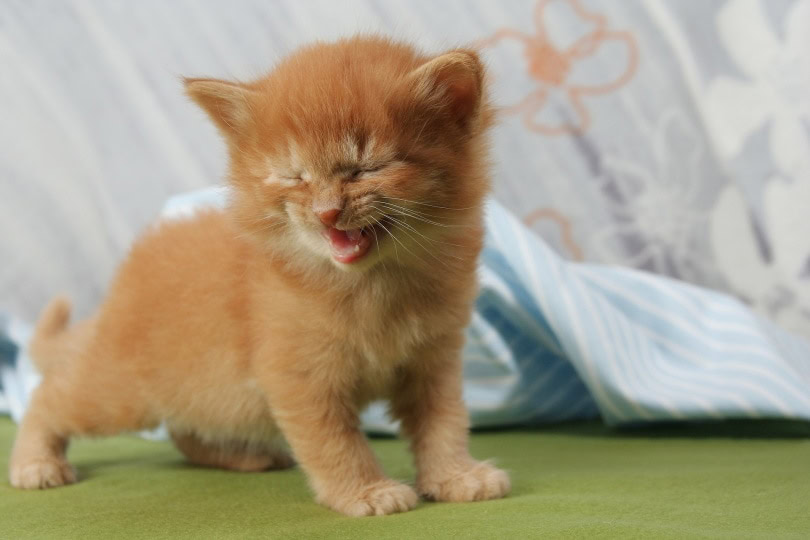
It’s also helpful to keep track of your kittens’ habits. Document how often they need to relieve themselves per day and at what times of day they go to the bathroom. You can also time how long it takes for your kitten to pee or poop after they eat or drink.
Tracking these things will help you anticipate when your cat will need to use the litter box. This will increase the chances of your pet successfully using the litter box and picking up the habit more quickly.

Conclusion
During the first month of their lives, kittens are dependent and defenseless. They need a lot of help, including peeing and pooping. Once they hit the 4-week milestone, they can usually poop on their own and begin litter box training.
Fortunately, kittens take to litter box training relatively quickly, so with a little patience and consistency, your kittens will be housebroken in no time.
See Also:
Featured Image Credit: Alisa Kolesnikova, Shutterstock
